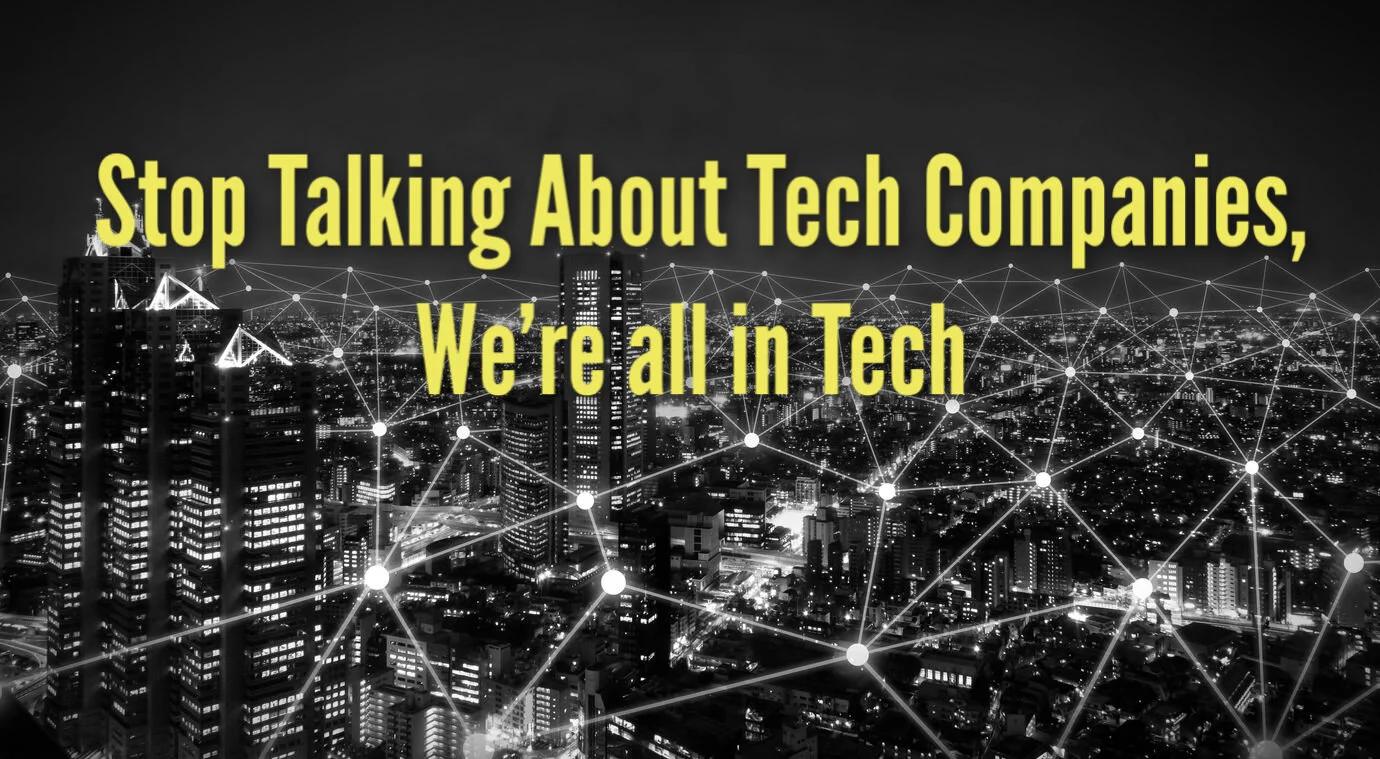Let me ask you a question. Do you use Siri? Or, Alexa? (So … do you think anyone will name their kid Alexa again?) Do you run around “Hey Google”-ing your way through some of life’s most basic questions? If the answer is “no” and you’re not already using voice assistants, I’m going to go ahead and make a bet — you will be soon.
Riding the Flow & 4 Other Ways to Make Great Things Happen
Going with the flow can be a scary idea for some people, simply because it means letting go of expectations —the number one killer of confidence. If you feel like you are constantly disappointed, it can be hard to just ride the flow. If you go with the flow, this does not mean that you have no power to create the life and career you want.
8 Innovators and Leaders We All Can Learn Something From
Who are some of the inspirational and innovative people you follow on social media? Or, who has been a great inspiration to you that DOESN’T have social media? Share your “top list”...
Be a Doer, Not a Talker … and Other Lessons on Influence
With the advent of social media, our potential influence expanded exponentially. Any user can now have a voice, possibly reaching thousands and playing a role in their decision-making.
Don’t Kick and Scream: CRE Gets Pulled Out of the Dark Ages
The wizards at Google have been brewing up some functions that will likely make waves in the way we operate in CRE. Like a lot of progress in the industry, this work is starting by addressing residential markets.
Where Tech and Real Estate Collide: Moderating at MRES & EXPO 2015
When I used to think of commercial real estate, I would often get frustrated that more people weren’t embracing the need to integrate available technologies into their business.
Real Estate Operations and Technology Are About to Change Forever
The commercial real estate industry is finally embracing the advances in technology and bringing with it a change in how we will run our everyday operations. Not only will it change the way we conduct our daily workflows, but it will change those simple tasks into value-creating functions and will take into account what Millennials in the workforce expect when it comes to finding the perfect company. It seems that most aspects of our lives are wired, and we have come to expect the instant gratification we get from technology. If we need information, we look it up on one of our various devices. Now, our clients expect that same gratification from the people they do business with and so do the people that work for us.
From computers to the internet to apps, our business strategies have changed. Businesses are constantly searching for quicker and better ways of producing the same service or product, quicker and more efficiently and, of course, cheaper while keeping the same or better quality. Whether you decide to use an all-inclusive online platform or you create an app, clients and employees are looking for the wow factor in your business strategy.
Does your company meet the needs of upcoming generations? Here are a few ways you can be ready:
Communication
The way we communicate has changed drastically. Most offices rely on email as the primary way we handle our day to day communications. It is better and less expensive than the cost for letterhead, envelopes, and postage fees. Some offices have even developed platforms for communicating inner office-chats, collaborative online workspaces, and the use of cloud storage to share documents.
Millennial Expectations
Millennials are the biggest generation in U.S. history, and their impact on the economy is going to be a big one. As they reach their prime working years and advance in their careers, they both want and expect certain amenities in their workplace, such as flexibility, technology, and company culture. Millennials will not settle until they find the perfect job offering everything they want and need, to advance them quicker up the ladder.
Growth
Growth is more important than ever. Businesses must focus on growth to keep the company's culture aligned for success. It is all about the long-term value of the company, so it plays a huge role in the valuation of a business.
Business growth is often measured by the turnover rate, market share, profits, sales and number of employees. Think in the future. Will you need to hire more manpower to balance the increase of work? Does this mean more equipment, a bigger space, a larger marketing budget, or all of them? Advances in technology allows more work to be done at a faster pace, and it seems to be getting faster each year as applications and their developers find new ways to improve their platforms.
Transparency
Investors and regulators are now demanding more transparency all around. Businesses are expected to communicate their distinct vision and what they expect from their employees. Likewise, employees expect the same from their employers. Transparency is a key factor in sharing knowledge and also to help build trust in the workplace. Transparency may include evaluations of previous work weeks to help the whole team learn from another's experience. Technology will continue to transform the way we conduct our everyday business into value-creating processes to be the new factor of success. It is imperative that we adjust our business strategies to factor in all of these areas into the commercial real estate industry.
Cyber Security: Are You Asking the Right Questions?
What we’re finding very interesting, and a new dynamic that’s super heavy with consumers and banks, is the importance of cyber security for real estate. While this subject probably isn’t something that gets a lot of attention prior to advances in real estate technology, it has now become something that requires attention by all parties. Why you ask? Because we are now, finally, seeing all-in-one products that will tie into your accounting systems, but will also tie into your treasuring and banking systems as a whole.
We Are FINALLY Embracing Technology...Now We Have to Worry About Cyber Security?!
These great advancements are amazing and help push our industry into the right direction, however, this also means that cyber attackers are trying to snatch the same information that you’re trying to protect. Let’s prepare for them by implementing safeguards.
Especially in the real estate industry, there are challenges that center on cyber and physical security issues in many aspects during our business transactions. Here are some of the areas to pay special attention to:
- Traditional cyber security issues surrounding email, social media, file storage through cloud platforms and other business applications.
- Real estate specific issues including property management, lease, finance and tenant related activities. With personal information being given during the property management process, this information is often targeted through those same systems. Advances in technology also provide for cash management applications to allow ease of payment for tenants. These applications can be vulnerable to attacks as third-parties usually design them.
- Working in smart, “connected” buildings offer an additional threat. While smart buildings offer many advantages such as lowering electricity costs, reducing carbon footprint to ultimately reduce costs and create savings, potential attacks could range from something as simple as turning off the lights or more potential serious damage. It is important for building systems to be locked down.
- Emerging systems in technology allow for applications such as facial and fingerprint recognition and wireless activity umbrellas. With these advances it also means having a proper team with the knowledge and skills to implement and maintain these sophisticated applications.
Hackers are Everywhere!
The fact that we now conduct a lot of business online, through web browsers and other vehicles through the Internet, it’s obviously much bigger now than ever before - yet we have to keep the momentum moving forward, to keep it moving as things happen. As smarter technology is developed to increase the ease and effectiveness of the way we do business, hackers are also becoming more sophisticated in the digital world. The positive note to this is that each time something happens, the technology we use to protect us is also restructured and upgraded to protect against it happening again. It’s almost like a battle between the good and bad and each time, we make it harder and harder for the hackers to get our information!
With 42.8 million detected incidents reported according to The Global State of Information Security®Survey 2014, this is a big issue that we need to watch out for and implement standards into our corporate framework.
The Financial Industry Gets It...
Most companies in the financial and banking industry have ramped up their spending to help combat hackers and cyber-attacks and over the years, with continuous advancements in technology, this amount will no doubt increase tremendously.
This means banking industry leaders are increasing security in the following areas:
- Due diligence: adding in on-site assessments of third-party vendors
- A more stringent procedure policy: making sure there are established minimum security requirements for organizations and subcontractors, regular audits and a requirement of notification should their third-party vendors have a security breach
- Security safeguards: encryption and multi-factor authentication
- Liability protections: having cyber insurance and indemnification clauses in their vendor contracts
- On-going cyber security audits
Get a Plan Together
While we can’t protect against every possible attack, having a plan in place and proper measures can keep us prepared for attacks. This enables us to protect our clients and our industry. Take into consideration these areas as you prepare your plan. Whether you decide to hire a Chief Information Security Officer or bring in consultants, planning a defensive strategy is required to stay one step ahead. For more information check out Homeland Security’s website: https://www.dhs.gov/topic/cybersecurity.
Technology of the Mind: Today’s Changing Workplace
Reasons to Support Technology in the Workplace In recent years, there has been a very noticeable shift in the way we conduct business on so many levels. One of the main areas where we’re seeing this shift is in the workplace. Millennials, the so-called “startup culture,” a segment of today’s workforce - the difference is that people now want to feel a certain way when they come to work. It’s no longer about healthcare plans and 401k’s.
It’s an environment.
I wholeheartedly believe that our society has really evolved in a way where community, communication, and collaboration are literally more relevant that what companies previously offered their teams. People want to have fun, be inspired and feel empowered and surrounded by creativity.
Let me give you some examples...
Take a look at Starbucks. They aren’t on the top 10 list of “America’s Most Admired Companies” for nothing. The company invests in their team and they thrive because people want to be in a comfortable and “homey” environment. They create a powerful happy workforce around enthusiasm and a feel-good atmosphere. They recently started the Starbucks College Achievement Plan, and they work to provide their employees with a wealth of opportunity for growth and advancement.
WeWork, is another great example of how we’ve revolutionized what defines the “workplace”. No closed doors, fluorescent lighting and dull naturals everywhere. WeWork provides collaborative office space providing furniture, internet - pretty much everything you need to grow your business. They are a community of industry leaders and innovative entrepreneurs. They really are the incubators of what we are all going to be. It’s getting to the point where if you have a satellite office at WeWork and you would like to consolidate your team back into an office setting you literally have to drag the people out by their earlobes.
This is a paradigm shift that can’t be achieved quickly or overnight. I see the way spaces are being designed and how they’re using technology such as smartboards to all sorts of other tools that allow people to enjoy working together and to work in a fun and happy environment. Just take a look at many of the amenities offered at today’s workplaces, such as bocce ball courts and karaoke rooms. All their buildings have a mix of these fun additions.
This doesn’t stop at technology, but also goes with the materials being used in these spaces. Take a look at the woods being used on the floor, murals in the office...murals everywhere. It’s not just technology products being offered, but also technology of the mind. I see combinations of both actual technology (products) but also the importance of how your mind feels as examples of how the workplace is changing.
It’s Also a Social Movement
Let’s jump to TheMuse. The Muse will show you how to define your company to be cool. It’s not just putting 500 words down that are designed to entice your next team member, but about how the culture in your office drives your company and what makes your company different. What is the heart and soul of your company? TheMuse takes that and showcases the best things your organization has to offer while providing you a link to a vast network of highly educated, career-minded professionals that are checking out your brand...your company!
This just goes to show you how important it is to not only support technology but to remain tech relevant for your clients to help continue to grow your client base, workforce and ultimately, your business. I’m a big believer in how technology can be applied to any workplace - particularly within the real estate industry - and I’m excited to see how this concept continues to evolve in both budding and senior companies in this industry.
Is CRE Ripe for Disruption? ABSOLUTELY!
Is CRE Ripe for Disruption? What You Need to Know I’ve always been a big fan of disruption. When I started my own company in 1990 focusing on commercial real estate brokerage and advisory services, I was trying to disrupt at that point already. At the time, the only way I was able to disrupt was by partnering with CoStar; I was the second person in New Jersey to buy it. The tools and resources that I was now armed with would allow me to differentiate myself in the market.
CoStar took the research department out of the big firms and the complexity needed to create that on your own, whereby a small start up like myself could have the same market information as large companies. It gave me the opportunity to get into a business and provide data and services where I otherwise would have been average.
At that point it wasn’t a disruption per se, but it was really a start and the availability of using real estate technology in a different way in order to make our business and also the availability of our business to morph into something greater and move into different sectors.
In the early stages of my career, accounting systems all tried their very best to truly be an all inclusive product, but in reality, they only focused on accounting. Despite being disrupters in their own right, this made it very difficult to take the information and to use it effectively - especially when you compare it to the way we use big data, data mining and measuring now. The entire process was very much in the dark ages, but so was our industry! This doesn’t mean their products weren’t good, doing their best or that they weren’t efficient, but more so that we can do so much more today. In fact, they were pioneers in this field and they deserve kudos for their efforts to disrupt an industry that historically is quite antiquated.
Will Commercial Real Estate be Disrupted?
Absolutely! Today, there are millions and millions of dollars being poured into real estate technology investing like never before! Obviously we have a tech market surge in all markets, not just real estate. Yet, when you consider the size of the real estate industry and the impact that it has on our economy as a whole, it’s nice to see a bit of growth and disruption.
When you finally see the smart money coming into the real estate technology marketplace and they actually understand that these products are more than just fads and will literally change efficiency, ability to communicate with and reach clients/prospects, and more, I get really excited.
How Will This Disruption Take Place?
It’s technology that will disrupt this industry. It will disrupt in such a way that if you don’t get on the train of where this is going, it would be safe to say that you’ll end up disrupting yourself.
If I’m a person that took my entire operation and retooled it to what it should be and my competitor didn’t, I’m leading the curve. I would now have a disruption on how to sell in a much more efficient manner to service our clients and to have the ability to run my organization in a way that will be more efficient. This would also allow you to deliver a service level that you weren’t able to before.
Technologies in the real estate space serve as disruptions, because while I’m only in certain markets to start - since real estate is the most local business on the planet when it comes to deploying resources - with technologies, I am able to scale into different markets and become a competitor in areas where I wasn’t. There are so many more reasons why our industry is ready for disruption. This is just the tipping point.
Let’s hear your thoughts on the commercial real estate industry and whether or not it’s ready for the disruptions that are coming its way. Connect with me today on Twitter.









